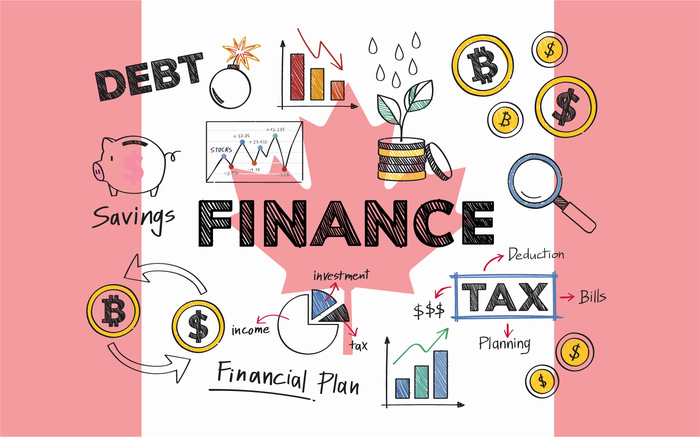Creating and sticking to a budget is essential for achieving financial stability and reaching long-term goals. A budget helps individuals to track their income, expenses, and debts and identify areas for improvement. Moreover, budgeting can help reduce financial stress and improve mental health. This article will discuss the benefits of creating a budget, strategies for sticking to it, and the tools and resources available to make the budgeting process easier. Whether you are new to budgeting or looking to improve your financial management skills, this article will provide valuable insights to help you take control of your finances.
Section 1: Benefits of creating a budget
Creating a budget can significantly impact an individual’s financial well-being. In this section, we will discuss some of the main benefits of budgeting.
Understanding your financial situation
One of the primary benefits of creating a budget is that it allows individuals to better understand their financial situation. By tracking income, expenses, and debts, individuals can see where their money is going and identify areas for improvement. This can help individuals make informed financial decisions and take steps to achieve their financial goals.
Goal setting and motivation
Budgeting can also help individuals set financial goals and stay motivated to achieve them. By creating a roadmap for their financial future, individuals can see where they want to be and what steps they need to take to get there. Budgeting can also help individuals build good financial habits, such as saving money and avoiding unnecessary expenses.
Stress reduction
Financial stress can be a significant source of anxiety and uncertainty. Budgeting can help reduce this stress by giving individuals a clear picture of their financial situation and a plan for moving forward. Individuals can improve their mental health and overall well-being by taking control of their finances.
The next section will discuss strategies for sticking to a budget to ensure long-term success.
FAQs
Q: Why is it important to track expenses?
A: Tracking expenses is important because it allows individuals to understand where their money is going and identify areas where they can reduce spending. It also helps individuals stay within their budget and make informed financial decisions.
Q: How do I create a budget if I have an irregular income?
A: Creating a budget with irregular income can be challenging, but there are some strategies to help. One strategy is to estimate your monthly income based on your average earnings over the past several months. Another strategy is to create a bare-bones budget that covers your essential expenses and allocate additional income towards discretionary spending or saving for future goals.
Q: What are some budgeting methods that work for different lifestyles?
A: Many budgeting methods work for different lifestyles, including:
- 50/30/20 budget: This budgeting method allocates 50% of income towards essential expenses, 30% towards discretionary spending, and 20% towards saving and debt repayment.
- Zero-based budget: This budgeting method allocates all income towards expenses, savings, and debt repayment, with no money left unaccounted for.
- Envelope method: This budgeting method involves allocating cash for different expense categories and placing the cash in separate envelopes, which can be particularly helpful for individuals who prefer using cash for transactions.
- Automated budgeting involves automating savings and bill payments, which can be particularly helpful for individuals with busy lifestyles.
The best budgeting method will depend on an individual’s unique financial situation and preferences. Trying out different budgeting methods to find the one that works best for you can be helpful.
Section 2: Sticking to a budget
Creating a budget is only half the battle. Sticking to it is the key to long-term success. This section will discuss some strategies for staying on track with your budget.
Prioritize your spending
When creating a budget, it is important to prioritize your spending. Identify your essential expenses, such as rent, utilities, and groceries, and allocate funds for them first. Then, allocate money towards discretionary expenses, such as dining out and entertainment. This can help ensure you have enough money for the things you need while allowing you to enjoy the things you love.
Avoid unnecessary expenses
Avoiding unnecessary expenses can help you stay within your budget and save money. This means cutting back on non-essential expenses, such as subscription services you rarely use or impulse purchases. It can be helpful to track your spending and identify areas where you are overspending or making unnecessary purchases.
Use cash or a budgeting app.
Cash or a budgeting app can help you stay on track with your budget. When using cash, you can physically see how much money you have left to spend and are less likely to overspend. Budgeting apps can help you track your expenses, set financial goals, and monitor your progress.
Review and adjust your budget regularly.
It is important to review and adjust your budget regularly to ensure it still works for you. Life circumstances, such as a change in income or unexpected expenses, may require adjusting your budget. Reviewing your budget regularly ensures that it remains realistic and effective in helping you achieve your financial goals.
In the next section, we will discuss some tools and resources that can help make budgeting easier.
FAQs
Q: What are some common budgeting mistakes to avoid?
A: Some common budgeting mistakes to avoid include underestimating expenses, not accounting for irregular expenses, and failing to adjust your budget when your financial situation changes. It is important to be realistic about your expenses and regularly review and adjust your budget as needed.
Q: How do I stay on track with my budget during the holiday season?
A: Staying on track with your budget during the holiday season can be challenging. Some strategies include setting a spending limit, making a list of gifts to purchase, and looking for deals and discounts. It can also be helpful to prioritize experiences over material gifts, such as spending time with loved ones or volunteering in the community.
Q: What are some strategies for dealing with unexpected expenses?
A: Dealing with unexpected expenses can be stressful. Some strategies include creating an emergency fund, prioritizing expenses, and looking for ways to reduce costs. It can also be helpful to seek out financial assistance or advice, such as speaking with a financial advisor or exploring government resources.
Section 3: Tools and resources for budgeting
Budgeting can be challenging, but there are many tools and resources available to make the process easier. In this section, we will discuss some of the most popular tools and resources for budgeting.
Budgeting apps
There are many budgeting apps available that can help individuals track expenses, set financial goals, and monitor their progress. Some popular budgeting apps include Mint, YNAB (You Need A Budget), and Personal Capital.
Excel spreadsheets
Excel spreadsheets can be a useful tool for budgeting. They allow individuals to customize their budgets to fit their unique financial situation and track expenses and income over time.
Envelope method
The envelope method is a budgeting strategy where individuals allocate cash for different expense categories and place the cash in separate envelopes. This can help individuals stay within their budget and avoid overspending.
Financial advisors
Financial advisors can provide guidance and advice on budgeting, saving, and investing. They can help individuals create personalized financial plans and make informed financial decisions.
Government resources
There are many government resources available to help individuals with budgeting and financial management. These resources include financial counseling services, debt management programs, and educational resources on financial literacy.
In conclusion, budgeting is a critical component of financial well-being. By creating a budget and sticking to it, individuals can reduce financial stress, achieve their financial goals, and improve their overall quality of life.
FAQs
Q: How do I get started with creating a budget?
A: Getting started with creating a budget can be overwhelming, but there are some simple steps to follow. First, gather all of your financial information, such as income and expenses. Then, create a list of your essential expenses and allocate funds for them. Finally, allocate money towards discretionary expenses and set financial goals for the future.
Q: What are some tips for overcoming budgeting anxiety?
A: Budgeting anxiety is common, but there are some tips to help overcome it. One tip is to focus on the benefits of budgeting, such as reducing financial stress and achieving financial goals. Another tip is to start small and gradually build up to more complex budgeting strategies. It can also be helpful to seek out support and guidance from friends, family, or a financial advisor.
Q: How long does it take to see the benefits of budgeting?
A: The benefits of budgeting can vary depending on an individual’s financial situation and goals. Some benefits, such as reduced financial stress and improved financial habits, can be seen immediately. Other benefits, such as paying off debt or saving for long-term goals, may take several months or years to achieve. However, consistently sticking to a budget over time can lead to significant improvements in financial well-being.




